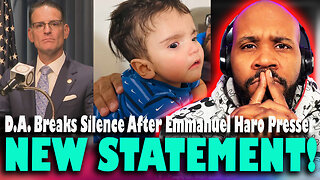Premium Only Content

When ‘Team Building’ Becomes the Worst Part of Your Job
Corporate cringe is getting out of control and it is clear why companies are desperate, almost to the point of obsession. And it all started in 2013.
The rise of corporate culture cringe and the obsession many startups have with building the "perfect" company culture. It all began with Airbnb co-founder Brian Chesky’s 2013 letter on company culture, but what started as a way to improve employee engagement quickly spiraled into toxic corporate culture. From cult-like corporate cultures to forced team-building activities and bizarre corporate rituals, this video explores how companies like WeWork exemplified the extremes of these practices.
We also explore how a CEO’s influence can shape company culture, often leading to oppressive environments and business culture failures. Join us as we break down how companies struggle to create a healthy work environment, and why company identity and the founder’s personality play a crucial role in a company’s success or downfall.
00:00 Examples of Cringy Company Culture
00:13 Airbnb’s Famous Culture Memo
00:38 “Don’t F*uck The Culture” Letter
01:02 Why Companies Obsess Over Culture
03:16 WeWork’s Cult-Like Culture
04:35 CEOs Shape Company Culture
-
 7:32
7:32
Mini Money Docs™
2 months agoWhat Killed Quiznos? (It Wasn’t Subway)
9 -
 LIVE
LIVE
Boxin
1 hour agoGrounded! Part 6
75 watching -
 LIVE
LIVE
TheBoyDevv
6 hours agoSNAKE BEATER?!🐍 | METAL GEAR SOLID Δ: SNAKE EATER GAMEPLAY ❗| I APPRECIATE YOU💙
408 watching -
 LIVE
LIVE
Lofi Girl
2 years agoSynthwave Radio 🌌 - beats to chill/game to
330 watching -
 4:30:47
4:30:47
BigN1ck
4 hours agoPhasmo and chill
33 -
 10:03
10:03
The Pascal Show
20 hours ago $6.01 earnedNEW STATEMENT! D.A. Breaks Silence Since Emmanuel Haro Presser... Trying To Shut Up Social Media?!
20.3K3 -
 LIVE
LIVE
LethalPnda
1 hour ago🔫 "Bullets, Bad Decisions & Farlight 84" I @Mystivis
42 watching -
 21:22
21:22
GritsGG
16 hours agoPlugged in MnK on Warzone & We Hit Shots!
171K5 -
 1:23:30
1:23:30
TruthStream with Joe and Scott
2 days agoJaime Harlow is back! #483
16.8K21 -
 1:32
1:32
Gaming on Rumble
2 days agoWhat is the Rumble Creator Program?!?! | Lvl UP
65.8K4